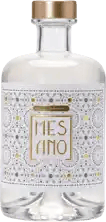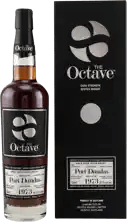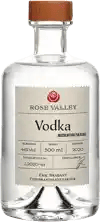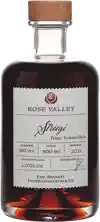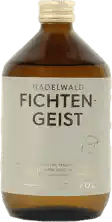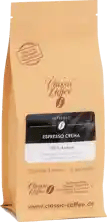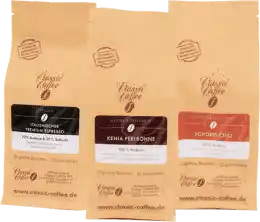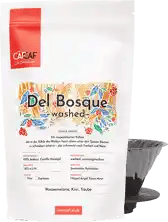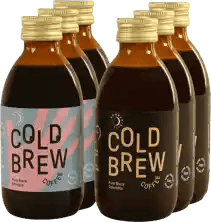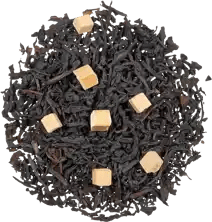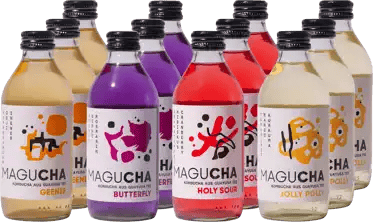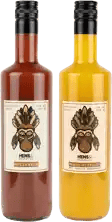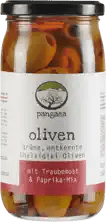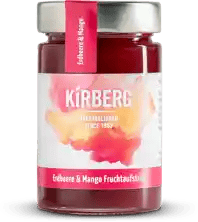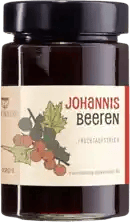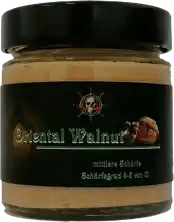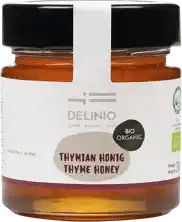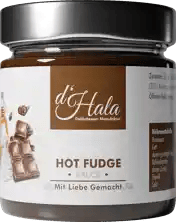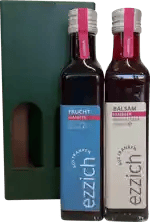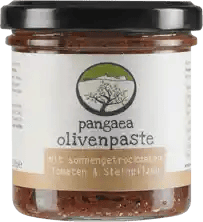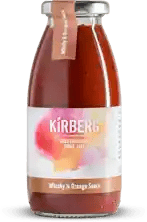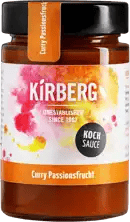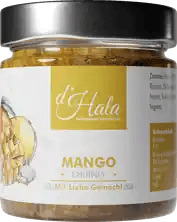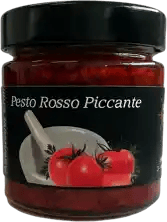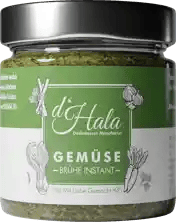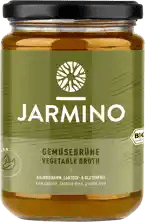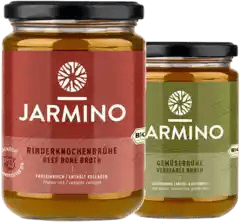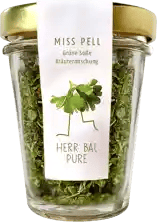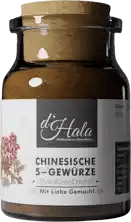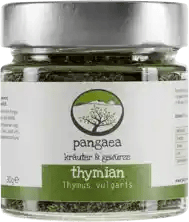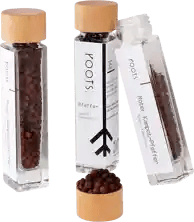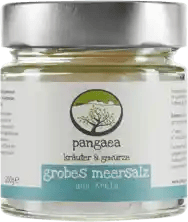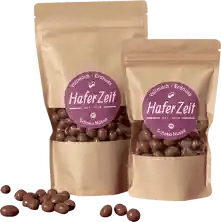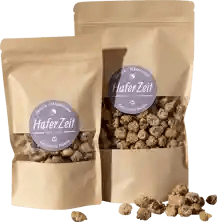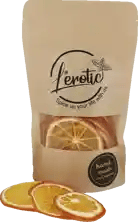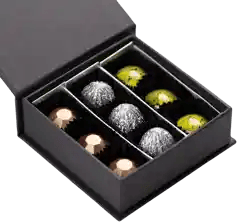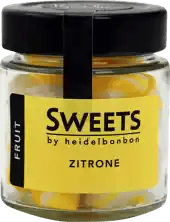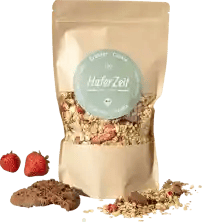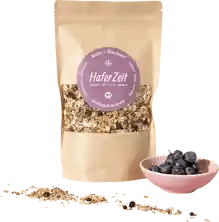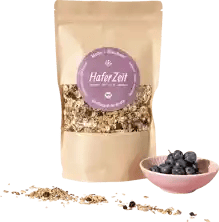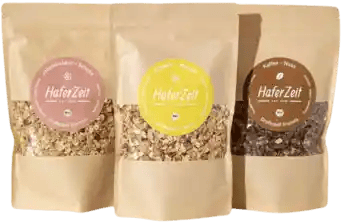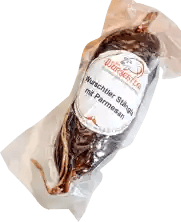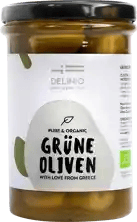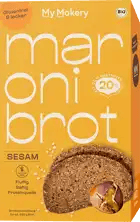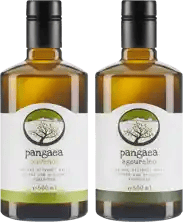Quality instead of quantity!
7,000 independent products
No mainstream
7,000 independent products
Vinegar: The magician for salads and aromatic dishes
Vinegar, the culinary miracle cure, transforms simple salads and dishes into delicacies. Its versatility ranges from enhancing classic Italian antipasti to enriching the flavor of hearty lentil soups. Vinegar, in its natural form, is a flavor enhancer obtained from simple ingredients such as fruit or wine. Its history is as old as mankind itself and once began by chance: a Babylonian discovered fermented fruit juice and recognized its potential. Over the centuries, vinegar developed into an indispensable ingredient in the kitchen - once as a refreshing drink mixed with water, later as an essential seasoning for food.
Vinegar production has evolved from a happy accident to a painstaking craft. Modern methods such as the Orleans process or the chip-forming process make it possible to produce vinegars with incomparable aromas from quality wines and fruit. From classic wine vinegars to exotic fruit vinegars - every drop tells the story of its origin and production process.
Buying vinegar - variety of types and quality
Buying vinegar opens up a world of aromas and flavors. From the spiciness of wine vinegar to the fruity sweetness of fruit vinegar - the choice is huge. High-quality vinegars are the result of careful production using natural ingredients and traditional methods. These vinegars add a special touch to any dish, whether in salad dressings, marinades or as a sophisticated ingredient in sauces and soups.
You can recognize the quality of a vinegar by its balanced taste and gentle acidity. It is an indication of careful fermentation and appropriate maturation. We offer vinegars that are produced by small manufacturers with a great deal of love and expertise. These vinegars are not only a treat for the palate, but also a commitment to artisan quality and sustainability. Discover an exclusive selection of vinegars that will enrich your kitchen and enhance your dishes.
What are the differences between vinegars?
Not all vinegars are the same - the differences are varied and exciting. From classic wine vinegar to fruity fruit vinegar and exotic balsamic vinegar, each variety has its own character. Wine vinegars, made from red or white wine, offer a wide range of flavors, depending on the type of wine used. Fruit vinegars, such as apple or raspberry vinegar, fascinate with their natural sweetness and fruity acidity, perfect for light salads and desserts. Balsamic vinegar, especially the traditional Aceto Balsamico di Modena, impresses with its intense sweetness and complex aromas, ideal for fine salad dressings and for refining gourmet dishes.
The variety of vinegars offers unlimited possibilities for enhancing your dishes and giving them a very personal touch. Whether you are looking for something mild for a light salad or something powerful for a hearty meat dish, there is always a vinegar that fits perfectly.
What you should look out for when buying vinegar
When buying vinegar, you should pay attention to quality and origin. High-quality vinegars are characterized by natural ingredients, a balanced acidity and a rich taste. They contain no artificial additives and offer an authentic flavor experience. Look out for vinegars that are made from high-quality wine or fresh fruit and traditionally matured, as they guarantee superior quality and deep flavors.
Another important aspect is the transparency of the production process. Good producers provide information about the raw materials used and the production methods. This gives you the assurance that you are buying a product that has been made with care and respect for tradition and quality. In our range, you will find a careful selection of vinegars that meet these high standards and enrich your kitchen with tasty, high-quality products.
Let's explore the essential vinegars for your kitchen in the next step.
You should have these vinegars at home
Every well-stocked kitchen should have a few essential vinegars. First and foremost, a classic wine vinegar is a must - whether red or white, it adds a pleasant acidity to salads and sauces. A high-quality balsamic vinegar, ideally Aceto Balsamico di Modena, is perfect for exquisite dressings and for rounding off sauces. Fruit vinegars such as apple or raspberry vinegar are excellent for fruity salad dressings and marinades. They add a sweet note to your dishes without being too dominant.
Another good tip is to always have a versatile brandy vinegar to hand. It is ideal for pickling vegetables and for quick, everyday dressings. With these basics in your vinegar range, you are well equipped to enrich and refine the taste of a variety of dishes.
How is vinegar made?
The production of vinegar is a fascinating process based on the fermentation of alcohol into acetic acid. In the traditional method, alcohol-containing liquid such as wine or fruit juice is mixed with vinegar bacteria and the natural fermentation process begins. This process can vary depending on the type of vinegar and production method and can take anywhere from a few weeks to several months or even years.
High-quality vinegars, especially balsamic vinegars, often undergo a long maturation period in wooden barrels, which gives them a complex aroma and a special depth. The art of vinegar production lies in choosing the right time for fermentation and maturation in order to achieve the desired taste and quality of the end product. Our range includes vinegars that are produced with the utmost care and using traditional methods to ensure the highest quality.
How is high-quality vinegar made?
High-quality vinegar is created through careful selection of raw materials and an attentive production process. Wine vinegars are made from quality wine varieties, while fruit vinegars are made from fresh, ripe fruit. The key to an excellent vinegar lies in slow and natural fermentation, which intensifies the characteristic taste and aromas. Many premium vinegars are also matured in wooden barrels, which gives them additional flavor notes and a special depth.
This method of production takes time and patience, but the result is a product of exceptional quality that enhances every meal. In our range, you will find a carefully selected range of vinegars made to these high standards to add the finishing touch to your culinary creations.
How can you recognize good and inferior vinegar?
The quality of vinegar can be recognized by a few important characteristics. High-quality vinegar is characterized by a balanced, complex taste that goes far beyond pure acidity. It should have a certain depth and a broad spectrum of flavor nuances. When assessing the ingredients, pure vinegar should not contain any unnecessary additives such as preservatives or artificial flavors.
Inferior vinegar, on the other hand, often has a sharp, one-dimensional taste and may contain additives that mask the natural taste. A look at the labels reveals a lot about the quality: the fewer ingredients and the more natural they are, the better the vinegar usually is. In our range, we pay close attention to these criteria in order to offer you only the best and purest vinegars. All products on our marketplace come from regional producers outside the mainstream. In other words, there are real people behind the products who value high-quality and natural ingredients.
What do you eat vinegar with?
Vinegar is a versatile condiment that shines in many culinary applications. It is an essential ingredient in salad dressings, where it is combined with oil to create a perfect balance of acidity and fatness. Vinegar can also be used in marinades to tenderize and add flavor to meat. In Asian cuisine, vinegar is often incorporated into sauces and dips to give dishes a fresh, sour note.
Whether you want to enhance a simple green salad or add a sour note to a hearty stew, the right type of vinegar can significantly enhance the flavor of your food.
Of course, the combination of vinegar and olive oil is very typical - simply because olive oil is one of the most popular types of oil and is often used in salad dressings.
Basic recipe for classic salad dressings with vinegar
A classic salad dressing with vinegar is easy to prepare and can easily be adapted to your personal taste. Mix three parts of your favorite oil with one part vinegar, add a pinch of salt and pepper and shake or stir the mixture until it emulsifies. For an extra flavor kick, you can add garlic, herbs or mustard. Experiment with different types of vinegar to find out which combinations taste best to you.
Whether you are looking for a light vinaigrette for a summer garden salad or a strong dressing for an autumn vegetable salad, with the right vinegars from our range, you can create the perfect dressing in no time at all.
Popular recipes with vinegar
Vinegar is not only suitable for salad dressings and marinades, but is also an insider tip for many other recipes. In Asian cuisine, vinegar gives sauces and soups an unmistakable taste. A splash of vinegar in a tomato sauce or lentil soup can intensify the flavor and add a pleasant acidity. For experimental cooks: try caramelizing fruit with vinegar to create unique desserts!
Fruity, sweet, sour - what does vinegar taste like?
The variety of flavors in vinegar is impressive. From fruity and sweet to tart and sour - vinegar can have a wide range of flavors depending on the variety and production process. Fruit vinegars such as apple or raspberry vinegar offer a natural sweetness and are ideal for salad dressings and desserts. Wine vinegars, such as red or white wine vinegar, have a more pronounced acidity and are ideal for savory dishes. Balsamic vinegar, especially Aceto Balsamico Tradizionale, offers a perfect balance of sweetness and acidity and enhances both savory and sweet dishes.
We have a wide selection of vinegar varieties that can give any dish an individual touch. Experiment with different varieties to find the perfect taste for you.
Which vinegar tastes how?
The taste of vinegar varies greatly depending on the variety and origin. For example, apple cider vinegar is known for its fruity, sour taste, which is ideal for salad dressings and as an addition to sauces. Wine vinegar, both red and white, is characterized by a stronger acidity and is ideal for heartier dishes. Exotic vinegars such as mango vinegar or raspberry vinegar surprise with a pleasant sweetness and are wonderful for desserts or as a special touch in cocktails.
What is the difference between vinegar and balsamic vinegar?
Vinegar and balsamic vine gar differ in terms of both production and taste. While conventional vinegar is usually produced by fermenting alcohol, balsamic vinegar is made from thickened grape must and often matures for years in wooden barrels. This long maturation period gives balsamic vinegar its characteristic sweetness and complexity of flavor. In contrast, vinegar is often sharper and more acidic. Balsamic vinegar is particularly suitable for salads, meat dishes and even some desserts, while vinegar is more versatile in the kitchen, from marinades to preservatives.
How to store vinegar properly?
Storing vinegar correctly is crucial for its shelf life and quality. It is best to store vinegar in a cool, dark place to protect it from light and heat. It is not absolutely necessary to store it in the fridge, but opened bottles in particular benefit from cooler temperatures. Make sure that the lid is always tightly closed to prevent oxidation and the entry of impurities. This will keep your vinegar fresh for a long time and retain its full flavor.
What is the shelf life of vinegar?
Vinegar is known for its long shelf life. If unopened and stored correctly, vinegar can even keep for several years. However, the quality of vinegar can deteriorate over time, especially if it is exposed to heat or direct sunlight. Opened bottles should be used within six months to ensure the best quality. It is important to watch for changes in color, smell or taste, as these may be signs that the vinegar is past its prime.
Effect and function of vinegar on the body
Vinegar is not only a versatile condiment in the kitchen, but also has numerous positive effects on the body. It aids digestion, helps regulate blood sugar levels and can even contribute to weight loss. Vinegar also has antibacterial properties that can be useful both in the kitchen and for general health. However, it is important to enjoy vinegar in moderation, as excessive consumption can lead to stomach problems.
How healthy is vinegar?
Vinegar is not only a versatile condiment, it also has health benefits. Many types of vinegar, especially apple cider vinegar, are known for their positive effects on the digestive tract and metabolism. They are also said to have a detoxifying effect.
The acids contained in vinegar can help to regulate blood sugar levels, making it a useful part of a balanced diet. However, it should be consumed in moderation, as too much vinegar can also irritate the stomach.
Types of vinegar
The world of vinegar is incredibly diverse. From classic apple cider vinegar to exotic fruit vinegars, the range of flavors is impressive. Each type of vinegar has its own unique character and is suitable for different culinary applications. We have compiled the most important information on all the main types of vinegar to give you a rough guide!
Fruit or fruit vinegar
Fruit or fruit vinegars are a delicious addition to any kitchen. They are made from various fruits and offer a balance of sweetness and acidity that wonderfully enhances dishes. Whether in salads, marinades or even desserts, fruit vinegars are versatile and add a special touch to your dishes.
Wine vinegar
Wine vinegar, a classic in the kitchen, is made from fermented grape wine and impresses with its distinctive aroma. Whether as a base for dressings, to refine sauces or as an additive in marinades, wine vinegar gives every dish a subtle tangy note. Discover our selection of high-quality wine vinegars and experience how they enrich your kitchen creations.
White wine vinegar
White wine vinegar, mild and versatile, is a must in every kitchen. It goes perfectly with light salads, fish dishes and is ideal for light sauces. Its fine acidity and subtle aromas make it an all-rounder that no household should be without.
Red wine vinegar
Red wine vinegar, with its characteristic strong and slightly tart taste, is ideal for hearty salads and meat dishes. It brings a special depth and flavor to your cooking. Whether you want to create a fine dressing or refine a sauce, red wine vinegar is the perfect choice.
Balsamic vinegar/Aceto Balsamico
Balsamic vinegar, known as aceto balsamico, is a unique taste experience. Made from reduced grape must, this vinegar is characterized by its sweetish note and dark, intense color. Whether as a dressing for salads, to season sauces or as a sophisticated addition to desserts, balsamic vinegar is a highlight for gourmets.
Aceto Balsamico Tradizionale di Modena
Aceto Balsamico Tradizionale di Modena is a real delicacy, produced according to strict traditional methods in the Italian region of Modena. This vinegar is made exclusively from high-quality grape musts and matures for at least 12 years in wooden barrels. The result is a vinegar of exceptional quality and complexity that enhances every dish.
Brandy vinegar
Brandy vinegar is an all-rounder in the kitchen. With its clear and clean taste, it is ideal for preparing marinades, dressings and pickling vegetables. Brandy vinegar is also a great choice if you are looking for a versatile vinegar with a balanced acidity.
Grain vinegar
Grain vinegar, often made from malt or beer, brings a unique flavor to your cooking. This type of vinegar is known for its slightly sweet and malty taste and is perfect for savory dishes. Its gentle acidity emphasizes the natural flavours of the ingredients without overpowering them.
Herbal vinegar
Herbalvinegar is a special type of vinegar that is made by pickling fresh or dried herbs. Popular herbs for this purpose are rosemary, thyme, basil and tarragon. This process gives the vinegar a unique flavor and makes it an excellent choice for salad dressings and marinades. Herbal vinegar is not only flavorful, but can also provide health benefits, depending on the herbs used.
Spiced vinegar
Spiced vine gar is made by adding various spices to conventional vinegar. Popular ingredients include garlic, chili, peppercorns or even more exotic spices such as star anise and cinnamon. These combinations create complex flavor profiles that can add depth and character to dishes. Spice vinegar is ideal for refining sauces, soups and pickling vegetables, making it versatile in the kitchen.
What is table vinegar?
Table vinegar is just another name for brandy vinegar - a classic in every kitchen. This versatile and tasteless vinegar is perfect for pickling vegetables, making dressings and many other uses. It is a reliable and inexpensive option for everyday cooking needs.
History: Where does vinegar come from?
The history of vinegar dates back to ancient times. Even in ancient civilizations such as Egypt and Babylonia, vinegar was made from sour fruit juices or wine. These early forms were used not only as a condiment, but also as a preservative and even as a remedy.
Over the centuries, the art of making vinegar evolved and it became an indispensable part of the cuisine in many cultures.
Historical production of vinegar
Traditional production was based on natural fermentation processes. Alcohol-containing liquid was brought into contact with air in simple containers to enable natural conversion by acetic acid bacteria. This method was refined over time to produce different types of vinegar with unique flavor profiles.
Make your own vinegar
Making your own vinegar is a fascinating and rewarding experience. It allows you to create your own unique flavor and gives you an insight into traditional vinegar making. With a few simple ingredients and a little patience, you can make your own vinegar creation.
Start with a base of wine, cider or another alcoholic beverage and add acetic acid bacteria. Monitor the process and finally enjoy your homemade vinegar.
Brilliant!

Bitte bestätige deine Anmeldung noch eben - du hast eine Bestätigungsmail von uns. Klicke darin auf den Link. Danach bekommst du deinen Rabattgutschein.




















